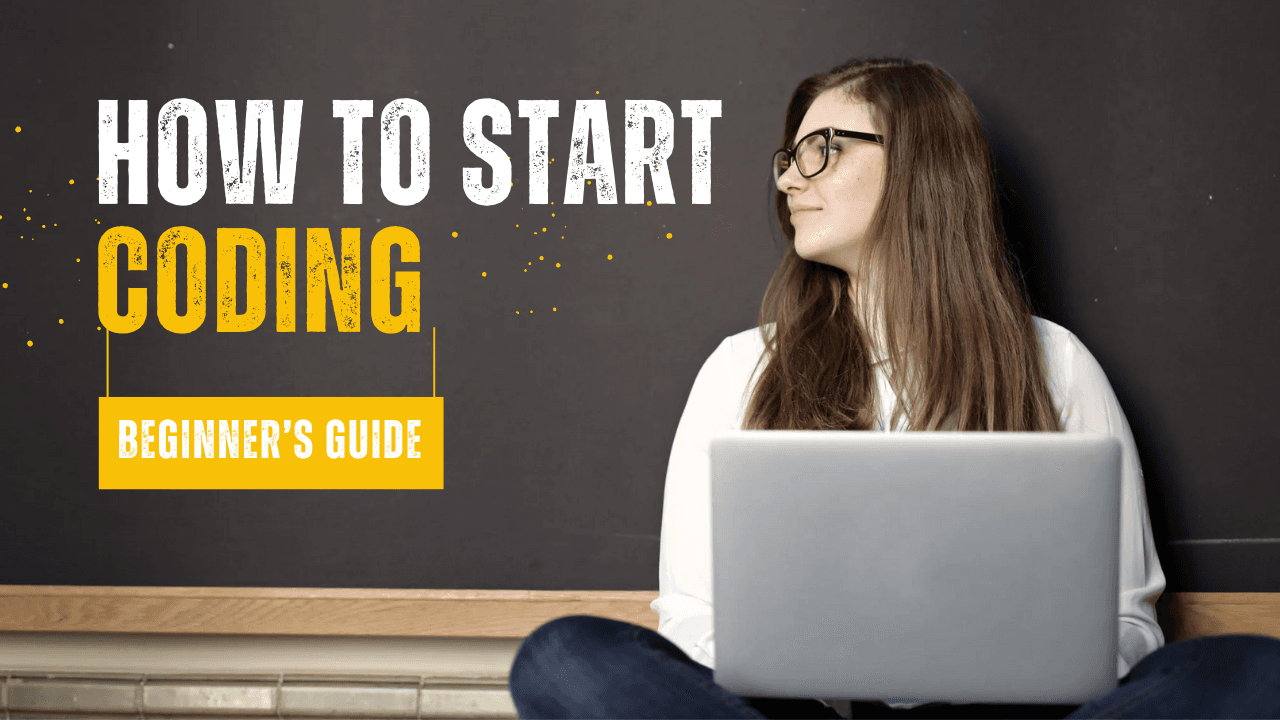Learning how to start coding is one of the most valuable steps you can take in today’s digital world. Whether you dream of becoming a web developer, creating mobile apps, working in data science, or simply automating daily tasks, coding opens countless career and personal opportunities.
In this guide, we’ll explore how beginners can start coding, which programming language to choose, the tools you need, and free resources to practice.
Why You Should Learn Coding in 2025
The demand for developers continues to grow worldwide. Coding isn’t just for professionals—it’s a digital skill that helps you:
- •Build your own website or blog
- •Create apps or games
- •Understand how technology works
- •Boost your career opportunities
Also read: 5 Best Programming Languages to Learn in 2025
Step 1: Define Your Goal
Ask yourself: Why do I want to learn coding? Your goal will guide the best starting point:
- •Web development → Learn HTML, CSS, and JavaScript
- •Data science → Start with Python
- •Mobile apps → Explore Kotlin (Android) or Swift (iOS)
- •Automation & scripting → Python is a great choice
Step 2: Choose a Beginner-Friendly Programming Language
Here are the most popular beginner languages in 2025:
- •Python – Easy to read and widely used in data science, AI, and automation.
- •JavaScript – A must-have for web development.
- •Ruby – Simple and beginner-friendly.
Also read: 10 Must-Have Tools and Resources for Beginners in Tech
Step 3: Set Up Your Coding Environment
To begin coding, you’ll need the right setup:
- •Code Editor → VS Code is free and popular.
- •Online Coding Platforms → Replit, CodePen, or Glitch (no installation required).
- •Version Control → Learn GitHub for storing and sharing your code.
Step 4: Learn the Fundamentals
Every language has the same core building blocks. Start with:
- •Variables and data types
- •Conditions (if/else)
- •Loops (for/while)
- •Functions
- •Debugging errors
Example: Write a simple program that prints your name or calculates basic math.
Step 5: Practice with Small Projects
The fastest way to learn is by building. Start with easy projects like:
- •A calculator
- •A to-do list app
- •A personal blog site
- •A simple quiz game
Step 6: Use Free Resources to Learn Coding
Here are some trusted free platforms:
- •freeCodeCamp
- •W3Schools
- •Codecademy (free + paid)
- •YouTube tutorials
Also read: Top 7 Free Website Hosting Platforms for Beginners
Step 7: Join a Coding Community
Don’t learn alone. Coding is easier when you have support. Join:
- •Stack Overflow for Q&A
- •Reddit (r/learnprogramming) for advice
- •Discord groups for real-time help
Step 8: Be Consistent and Patient
Coding takes time. Errors and bugs are normal — every developer faces them. The secret is consistency: practice a little every day, build small projects, and keep challenging yourself.
Final Thoughts
Starting your coding journey in 2025 is easier than ever. Define your goal, choose a beginner-friendly language like Python or JavaScript, practice daily, and make use of free resources.
Every expert programmer was once a beginner. Stay patient, keep building, and soon you’ll have the skills to create amazing projects.
